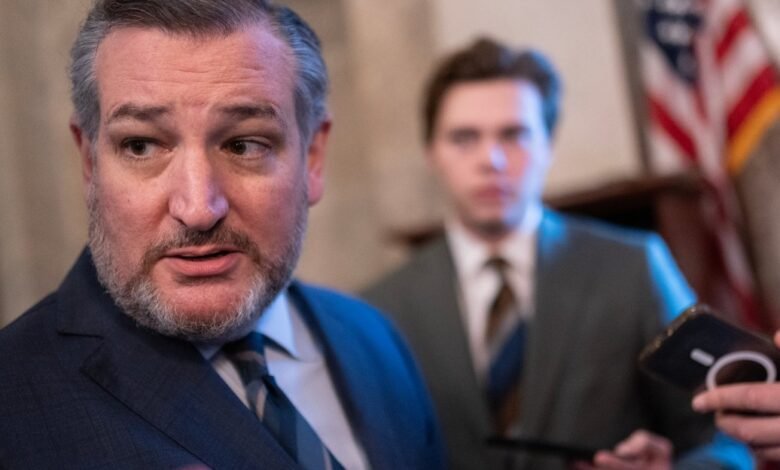Cruz Bill Seeks Damages for Government Censorship

▼ Summary
– Senator Ted Cruz plans to introduce a bill allowing Americans to sue for monetary damages over government censorship of speech.
– The bill includes exceptions for government investigations and excludes unprotected speech like nonconsensual intimate imagery.
– Cruz’s proposal follows FCC Chair Brendan Carr’s controversial comments about Jimmy Kimmel’s suspension, which Cruz criticized as “mafioso”-like.
– Cruz sees bipartisan potential for the bill after Democratic colleagues supported his criticism of Carr’s remarks.
– The Supreme Court previously reversed a lower court decision on Biden administration coercion of tech platforms, finding no concrete link to content removal decisions.
A new legislative effort spearheaded by Senator Ted Cruz aims to empower individuals to seek financial compensation when they believe the government has unlawfully restricted their speech. The proposed bill would establish legal pathways for citizens to file lawsuits and claim monetary damages in censorship-related cases, though it would maintain exemptions for official investigations and categories of unprotected expression such as nonconsensual intimate imagery. Cruz intends to formally introduce the measure in the coming weeks, framing it as a necessary check on governmental overreach.
Cruz’s initiative follows controversial remarks made by Federal Communications Commission Chair Brendan Carr, who suggested television networks had a choice between “the easy way or the hard way” regarding Jimmy Kimmel’s program after the comedian included a joke about Charlie Kirk’s killer. Kimmel’s show was temporarily suspended by Disney before being reinstated. Cruz condemned Carr’s language as reminiscent of mafia tactics, warning that while some might applaud pressure against a particular media figure today, such powers could eventually be turned against conservative voices nationwide. “It might feel good right now to threaten Jimmy Kimmel, but when it is used to silence every conservative in America, we will regret it,” the senator remarked.
Although Cruz had already been developing the legislation prior to these events, he now believes there may be bipartisan interest in supporting it. He told The Wall Street Journal that some Democratic colleagues expressed agreement with his criticism of Carr’s comments, opening a potential avenue for cross-party collaboration. “Perhaps that poses an opportunity for us to work together in a bipartisan way,” Cruz noted.
At the same time, certain aspects of Cruz’s broader campaign could complicate efforts to secure Democratic backing. He recently issued a report accusing the Biden administration of transforming the Cybersecurity and Infrastructure Security Agency into what he termed “an agent of censorship,” alleging it pressured major technology companies to suppress certain types of speech. Additionally, during a Commerce Committee event, Cruz contended that federal officials had encouraged social media platforms to remove users who voiced skepticism about COVID-19 policies and mail-in voting.
These claims run counter to a recent Supreme Court ruling, which overturned a lower court’s finding that the Biden administration had unconstitutionally coerced tech platforms. The high court determined there was no “concrete link” between government communications and the platforms’ independent content moderation choices.
Despite defending Kimmel’s right to free expression in the face of government pressure, Cruz made clear his personal opinion of the late-night host remains low. He told the Journal he would be willing to appear on Kimmel’s program to discuss the new bill but added that he does not find the comedian funny and boasted that his own podcast regularly outperformed Kimmel’s show in the ratings prior to its suspension.
(Source: The Verge)





